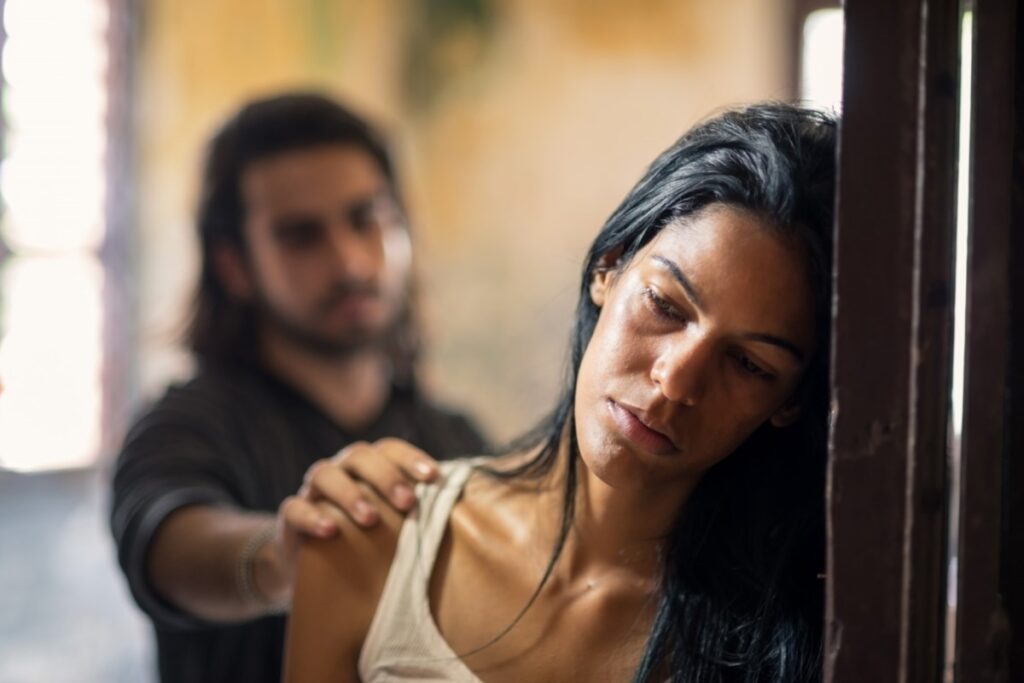

“It’s important to dispel the misconception that domestic violence should be resolved internally,” says reconciliation activist
Intimate partner violence affects individuals of all ages, but for immigrant families, the challenges are often more complex. Cultural bias, concerns about immigration status, and language barriers can trap victims in abusive situations.
Kula Kulasegaram, a settlement support worker with Immigration and Community Services (ICS) in Markham, has seen many migrant women struggle to seek help during her seven years in the job.
“Many immigrant women face significant challenges in seeking help due to limited English language skills, financial dependency on their partners and concerns about their immigration status,” Kulasegaram explains.
She recalled that some of her clients, like her, had mustered up a great deal of courage to schedule an appointment with a resettlement worker, only to give up after the consultation.
“Getting out of an abusive relationship is not as easy as it looks,” she said, noting that women always tend to give their husbands and families a second chance.
Sadly, their victimization can lead to an intensification of abuse, affecting not only the victim, but their children and other family members as well.
A common misconception among victims is that separating from their sponsors could jeopardize their immigration status. Kulasegaram clarifies that victims of abuse can seek help from IRCC’s Customer Support Centre, which prioritises abuse-related cases.
In the past, immigrants were required to live with a sponsor in order to maintain their permanent residence status, but this condition no longer applies, Kulasegaram explains.
Cultural differences also play a key role in silencing victims within immigrant communities.
“Many patients hide their suffering and pretend to live life as normal to avoid shame and protect their family’s reputation,” she says.
In many Asian cultures, elders often advise couples to tolerate marital problems, including spousal violence, in order to keep the family together. This cultural norm, combined with stigma, discourages victims from seeking help, perpetuating the cycle of abuse.
Abuse is not just a private issue, it is a societal problem that requires specialist intervention and support services. “It is crucial to dispel the misconception that domestic violence should be resolved internally,” stressed Kulasegaram.
At the Markham South Welcome Center, Kulasegaram and her colleagues work tirelessly to support immigrant women by providing legal and housing assistance, financial and child care assistance, education and training, and mental health and wellness programs.
“Housing is a major concern for clients trying to escape abusive situations or locations,” Kulasegaram added. “Shelter hotlines are available, but clients must call multiple times a day to check for availability. Language barriers often prevent clients from calling the shelters on their own.”
Settlement support workers help women complete applications, make phone calls, arrange for interpretation services and ensure women receive the support they need.
Despite the difficulties, Kulasegaram reassures victims that help is available. “Many feel isolated due to language barriers or previous bad experiences with the authorities,” she acknowledges, but urges them not to lose hope as “you are not alone”.
“Equipping migrant women with knowledge of their rights and the resources available to them is key to breaking the cycle of abuse,” Kulasegaram concluded. “With the right support, they can reclaim their lives and build a safe, independent future.”
If you are a victim of intimate partner abuse and need help, please contact York Region Community Safety Centre at 1-855-541-2220.
If you are in crisis, please contact our 24-hour Crisis Line via text message or call toll-free at 1-800-263-3247.
Scarlett Liu is a federally funded Local Journalism Initiative reporter at the Markham Economist & Sun.
Tara Thomas Agency stands at the forefront of the entertainment industry, with years of experience dedicated to nurturing the most exceptional talents and successful acts.